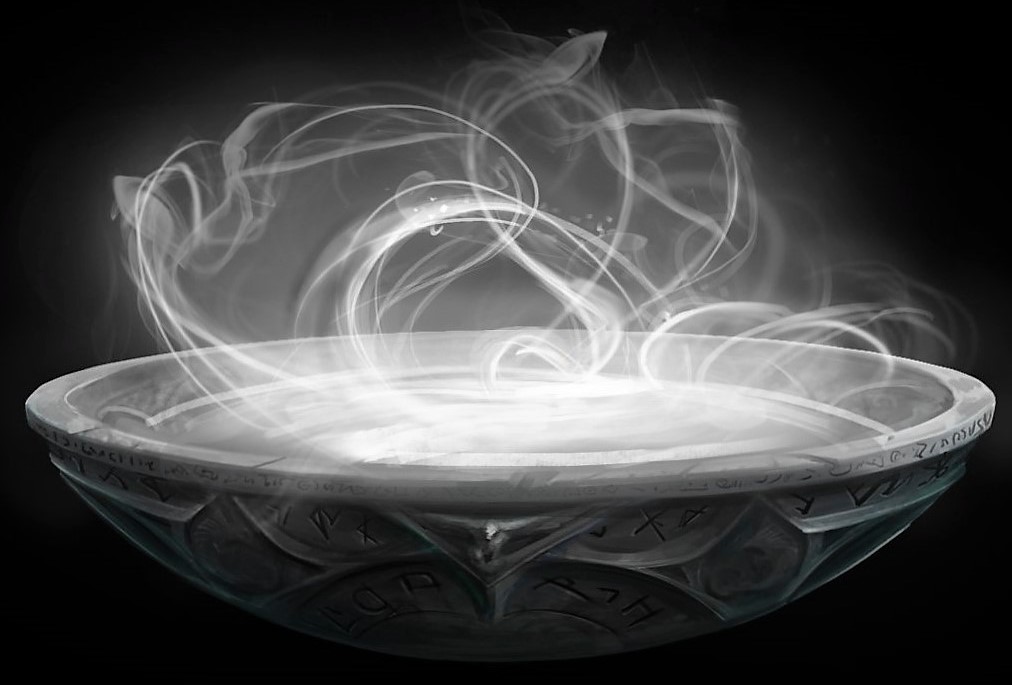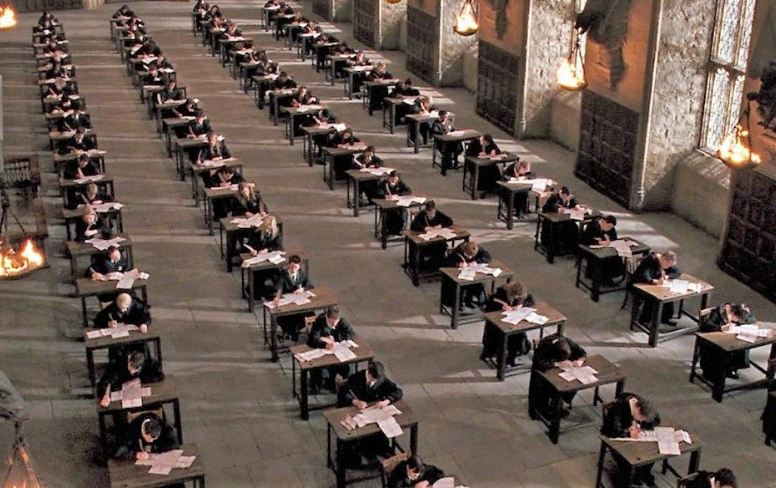Classes at Hogwarts We Wish We’d Heard More About
August 28, 2019—In episode three of the Dwelling on Dreams podcast, we discussed some of the different classes we wished had been in the Hogwarts curriculum, but there is a lot to be said about the classes that are already available for students to take as electives that Harry doesn’t talk about.
But before we get to discussing them, let’s take a quick look at the role electives play in the Hogwarts curriculum for those of you who might be unfamiliar. You can also find a more detailed explanation on the entire British Wizarding Education System here if interested.
At the end of second year, students choose at least two electives from the following list of classes.
- Arithmancy
- Care of Magical Creatures
- Divination
- Muggle Studies
- Study of Ancient Runes
Electives are taken along with the seven core classes until students reach their fifth year and take their O.W.L. (Ordinary Wizarding Levels) exams at the end of the year. Much like the PSAT standardized tests in the US, the results from these exams are designed to help inform students what type of careers they would be best suited to. After getting the results back from their O.W.Ls, students can choose to either drop classes that will not benefit them long-term or (if their grades qualify) continue on with the advanced level of sixth and seventh year N.E.W.T. (Nastily Exhausting Wizarding Test) preparatory classes. Receiving good N.E.W.T. results is vital as many career options have specific requirements as to the minimum acceptance level of N.E.W.T grade one needs in the required subjects for an Entry-Level position.
Of the five electives Hogwarts offers, Harry and Ron opt to take only two of them their third, fourth and fifth years: Care of Magical Creatures and Divination. Hermione (aside from third year where she takes all five in addition to her core classes) chooses to take Arithmancy, Care of Magical Creatures, and the Study of Ancient Runes in her fourth and fifth years.
We don’t really hear too much about the electives that Harry and Ron chose not to take, and I personally have always thought those sounded more interesting, so I did my research and found out the following:
Arithmancy
Taught by Professor Septima Vector, Arithmancy is centered around the magical properties of numbers. It is a very precise, measureable discipline – especially when compared to other more nebulous subjects like Divination, though there are some similarities between the two. Arithmancy uses numbers to predict logical outcomes and can be looked at as a way of applying book studying to Divination.
Arithmancy is a method of divination by numbers first used by the ancient Greeks. They assigned values to the letters in the names of combatants to foretell the outcome of battles. Later, in the ninth century BC, the Chaldeans in Arabia (where our modern number system also comes from) practiced a form of arithmancy that divided their alphabet into three parts, each part composed of seven letters which they attributed to the then known seven planets. Wizards still use a similar system today, all these thousands of years later. (Beyond Hogwarts)
A favorite class of Hermione Granger, Arithmancy is not for the faint at heart! While it could potentially be useful, say, if you were going to tell your crush you liked them and wanted to see when they would be in a receptive mood, it is not an exact science.
For a more detailed description of Arithmancy, including how to calculate the Character, Heart and Social Numbers of a person to determine their basic personality traits, visit the Beyond Hogwarts website here.
Study of Ancient Runes
Professor Bathsheda Babbling is the teacher of this course, which is more or less a foreign language class. “Ancient Runes is a form of writing which witches and wizards used hundreds of years ago. Homework involves plenty of practice translating runes, and the O.W.L. involves translating something written in runes into English.” (HP Lexicon)
It’s interesting to note that, while we see runes written on various objects (ex: Dumbledore’s Pensieve) and mentioned throughout the series, we as readers are given very few details on what an actual class on this subject would entail. Hermione’s study of Ancient Runes does come in extraordinarily handy when the trio are on the run, as she is able to translate the Tale of the Three Brothers from the book Dumbledore left her.

Muggle Studies
Muggle Studies is taught by Professor Charity Burbage, who met her unfortunate demise at the fangs of Voldemort’s pet Nagini, and “involves the study of the history and daily lives of Muggles, and how they are able to live without magic, but instead electricity, technology and science.” (HP Fandom)
This class was particularly of value to those are planning on pursuing a career at the Ministry of Magic, as they would be working with/around Muggles on a frequent basis. However, many during Harry’s school years viewed it as a “soft” or throw-away option to get an easy grade. While this may be true for muggle-borns (Hermione took this class third year, but dropped it before her fourth as it was “too easy”), I think this class definitely would have been helpful for half- or pureblood members of the Wizarding community, provided the curriculum stayed current.
During the 1997-1998 school year (when the Death Eaters ran Hogwarts), this class was required for all students to take, and Aletco Carrow twisted it into the opposite of everything it was supposed to be. She was attempting to brainwash the Hogwarts students into having a low opinion of Muggles, but she was opposed by Neville and the other members of Dumbledore’s Army. I like to think that, after the Final Battle and the reconstruction at Hogwarts, the staff updated the curriculum, put a good amount of effort into fixing the mental/emotional damage done by the Death Eaters, and used this class to teach good things about Muggles again.
Alchemy
While not a O.W.L. elective, this N.E.W.T-level course was definitely the most intriguing class to me by far—partially because it is not guaranteed to be offered from year to year, and partially due to the magical possibilities of learning this branch of magic.
Alchemy is a branch of magic and an ancient science concerned with the study of the composition, structure and magical properties of the four basic elements, as well as the transmutation of substances; it is thus intimately connected with Potion-making, chemistry and transformation magic. While Muggles for the most part largely dismiss it as an outdated forerunner of modern chemistry, there were still wizards actively studying and practising it in the twentieth century and who held it to be some of the most difficult magic known to wizardkind. (HP Fandom)
Basically, Alchemy brings almost everything one can learn about magic together, thus requiring one to have a good grasp on advanced concepts from each discipline, hence the very selective list of people allowed to study it at Hogwarts. Sounds very interesting to me! For a more detailed description about Alchemy, visit HP Fandom here.
So what do you think? What electives would you have chosen during your school years if you were a Hogwarts student? Leave us a comment down below and be sure to check out Episode 3 of the Dwelling on Dreams podcast where Taylor and I talk about some classes that aren’t currently included in the curriculum but that we definitely think could be beneficial as electives!

